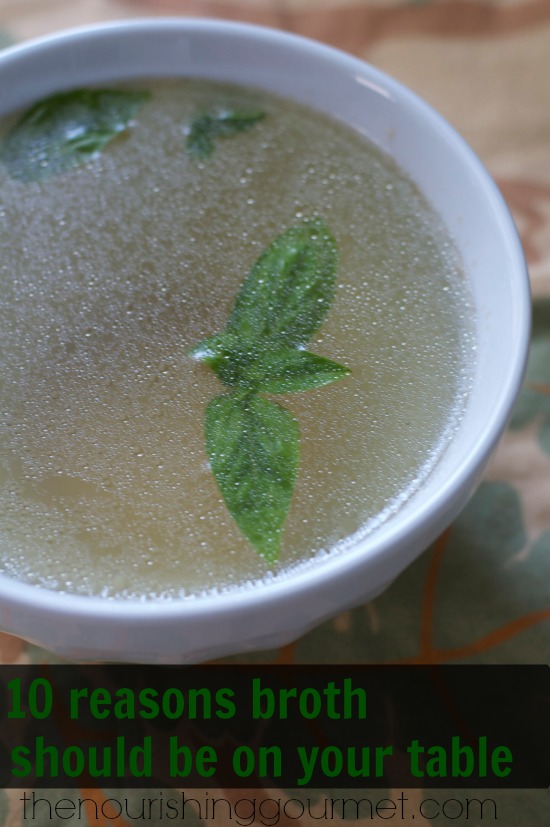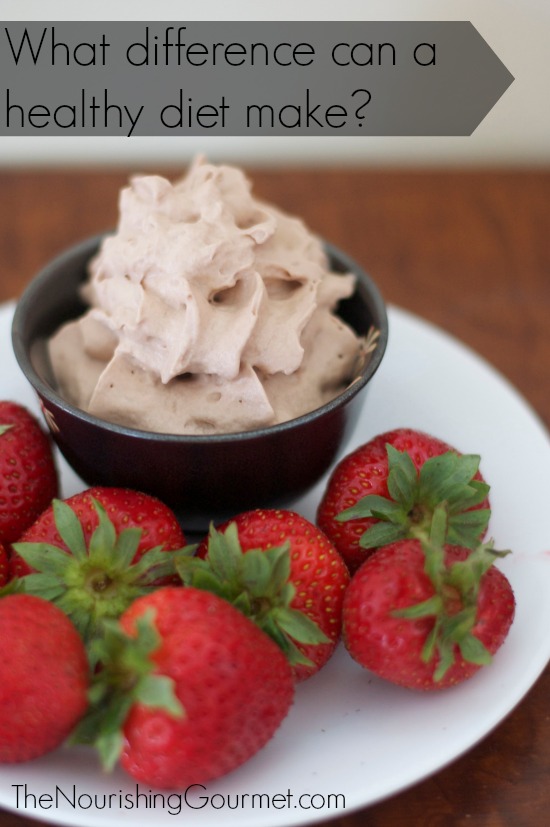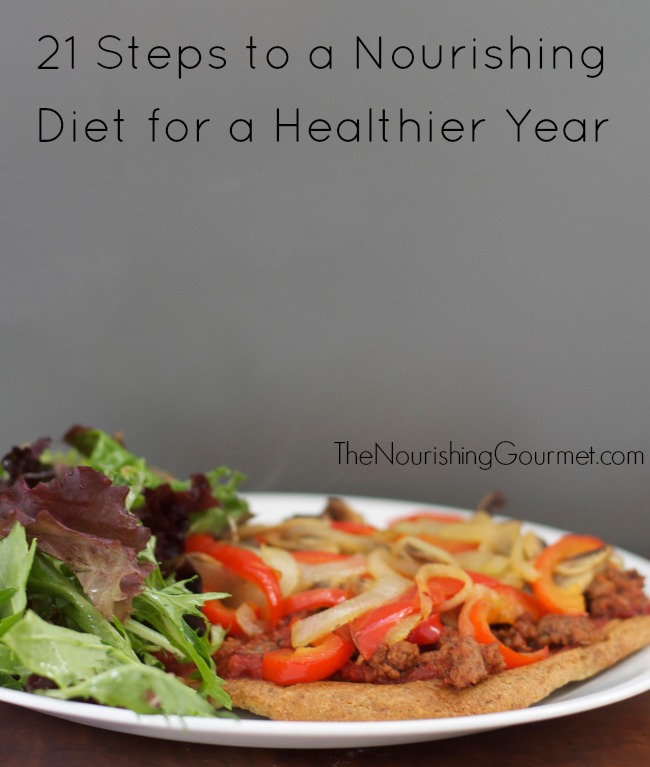
The Jewish penicillin, the gut-healing golden liquid, the frugal kitchen’s star, the gourmet’s canvas, healthy homemade broths and stocks are incredibly worthy of your time, and certainly worthy to be on your table.
I know that I circle around to how great homemade broth is a lot on this blog , but could I really ignore the topic in my 21 steps to a nourishing diet series? Absolutely not! Considering that I am the type of person to write an entire book on soups ( affiliate link), you better believe that I think that broth’s are valuable.
Today I thought I’d gather together ten great reasons making broth should be high in your priorities when switching to a nourishing diet. And don’t worry. Broth making is one of the easiest methods to learn in the kitchen. I have a couple links at the end of this post for recipes.
1. Homemade broth is delicious!
Homemade broths (stocks) have been the cornerstone of many different traditional diets, and have been held in high regard for their health promoting aspects and how delicious they make food. Not only can you make delicious hot soups (who doesn’t like Chicken Noodle Soup?!), but you can also use them for delicious sauces, to moisten stir fried dishes, and even use them in gravies! I made a dairy-free sausage gravy with homemade chicken broth the other day, and it was delicious. The point it this, we can find many delicious ways to use broth.
2. Making broth respects the death of an animal
We have chosen not to be vegan as we feel that animal products are necessary for our health and well being. But that doesn’t mean we take the death of animals lightly. We respect and honor their sacrifice. One of the ways we do that is by making sure that all parts of the animal are used. When making broth, you are making sure that none is being wasted.
3. Homemade broth is a frugal practice
Do you like making roasted chicken or chicken drumstick dishes? Absolutely save those bones for homemade broth! I can squeeze so many more meals out of a strict grocery budget when I am making broths and using them in meals. Beef broth is also frugal to make. To take frugal to the next level, reuse the bones following this method, or my own version of it in my cookbook, Ladled: Nourishing Soups for all Seasons. (aff link)
4. Homemade broths made with bones are a good source of minerals, including calcium
When you make broths in slightly acidic water (by the addition of vinegar) and slow cook it for hours, the minerals in the bones start drifting into the broth creating a mineral rich food for you. The higher the bone-to-water ratio, the more mineral rich it will be. Since we have found that we can’t rely on dairy for calcium, homemade broths fit the bill nicely for us. Some may remember that soup made with homemade broth was part of Dr. Price’s body and teeth building protocol.
5. Homemade broths are a good source of proline
Proline could help support our nervous system, and is being researched as a possible treatment for neurodegenerative diseases, meaning it could help protect our brains! Some are considering it an essential amino acid.
6. The glycine in broth could help with detoxification
As was explained so well in The Healing Power of Broth, “Another vital function [of glycine] is detoxification. The human body requires copious amounts of glycine for detoxification after exposure to chemicals…”
Unfortunately, we are often exposed to chemicals in our environment. Regular servings of high quality broth could help our bodies deal with that real stress.
7. Glycine in broth could help your digestion
Once again quoting, The Healing Power of Broth, “Glycine also helps digestion by enhancing gastric acid secretion. Research published in 1976 established that only proteins stimulate gastric acid secretion, but apparently not all amino acids do so. Glycine is one of those that do, a fact that was known in 1925.”
I’m sure that many of you have heard of the research showing how abnormal our stomach acid levels are. Glycine (and more broadly) the gelatin in broth could help balance that out for us, which is vital for proper digestion, and gut health. Gut issues are really much more common than many know. Because so much of our health starts in the gut (even our bodies ability to respond to allergens!), keeping out gut healthy is vital, and homemade broth is full of elements that are gut healthy – one being glycine.
8. Gelatin in homemade broth helps you digest protein from meat and plant sources
Homemade broth can be a wonderful source of natural gelatin, which has many benefits. One of which is that it was found to increase the digestion of protein from wheat, oats, barley, beans, and meat. If you are on a stricter budget that doesn’t allow higher amounts of protein foods, homemade broth or gelatin could help you absorb and use more of the protein you do eat!
9. Homemade broth is an excellent food for those recovering from illness
Homemade broth was especially valued for those who were sick traditionally, and some studies did show that those who consumed gelatin (one of the main parts of broth) did indeed heal and recover faster. Ever wonder why Jello was served so often at hospitals? Now you know (and I would actually eat it if it was made with fruit juice or kombucha!).
10. Homemade broth is a rich source of a variety of nutrients
There is always a danger in turning to supplements of this or that for healing and nutrition. A single substance could have many benefits, but it is also more likely to have side effects or throw out of balance other nutrients in the body. However, when eating them in food form, other balancing nutrients are also present. This allows the body to be well nourished across the board, instead of simply getting high doses of one thing. Homemade broth is an excellent source of many important minerals, amino acids, and health building gelatin, and as such, can be an excellent addition to your diet.
Posts on Making Broth:

